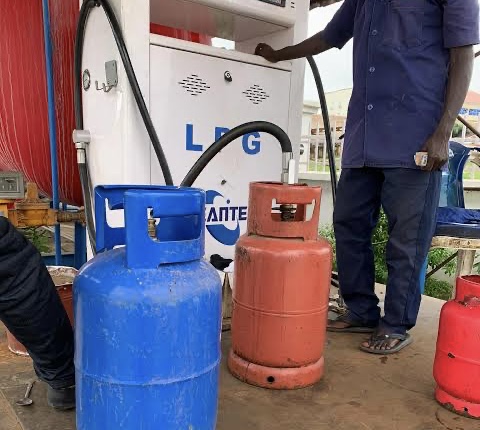KEY POINTS
- Liquefied Petroleum Gas (LPG) still sells for up to N1,800 per kilogram in Abuja weeks after government intervention.
- Strike at Dangote Refinery and maintenance at Nigeria LNG reduced domestic supply, contributing to price surges.
- Officials assure operations have resumed, with expectations that new deliveries will ease costs.
Weeks after the Federal Government promised measures to curb the rising cost of cooking gas, Liquefied Petroleum Gas, LPG, remains expensive across Abuja, frustrating households and retailers alike.
A survey conducted by the News Agency of Nigeria revealed that roadside retailers continue to sell LPG for as much as N1,800 per kilogram, a steep jump from the previous N1,100 per kilogram. Analysts and consumers attribute the spike largely to the recent strike by the Petroleum and Natural Gas Senior Staff Association of Nigeria (PENGASSAN) at the Dangote Refinery and ongoing maintenance at Nigeria LNG’s train four facility.
The government responded by instructing the Nigerian Midstream and Downstream Petroleum Regulatory Authority (NMDPRA) to intensify monitoring at LPG depots to prevent hoarding and stabilise supply.
Dr Ekperikpe Ekpo, Minister of State for Petroleum Resources (Gas), said operations at the Dangote Refinery have resumed and LPG is being loaded to domestic markets. He added that the Bonny River Terminal, operated by Seplat Energy, has restarted loading, while Nigeria LNG is gradually restoring normal output as maintenance nears completion.
Retailers and consumers await relief
Despite assurances, retailers explained that they are still selling older stock purchased at higher costs, which keeps consumer prices elevated. Mr Kingsley Paul, a local retailer, said, “I still have old stock. When the price we buy comes down, we will also sell at a reduced rate. Since Dangote Refinery has resumed supply, I believe prices will drop with new deliveries.”
At some major outlets, LPG continues to sell at N1,450 per kilogram. Anonymous managers expressed hope that fresh deliveries would allow them to adjust prices downward.
Environmentalists and consumer advocates stress the need for the government to make LPG affordable to encourage its adoption over traditional fuels like firewood, charcoal, and kerosene. Mr Christian Chibuzor, an environmentalist, said, “Using cooking gas reduces carbon emissions and improves air quality, but high prices make the transition difficult, especially in rural areas. The government must demonstrate commitment to lowering costs for households to benefit.”
With the holiday season approaching, many Nigerians hope that renewed supplies from Dangote Refinery, Seplat Energy, and Nigeria LNG will finally ease pressure on consumers and bring cooking gas prices back to manageable levels.



